Search Results
Search
Filter results
Advanced Filters
Your search returned 105 Solutions
-
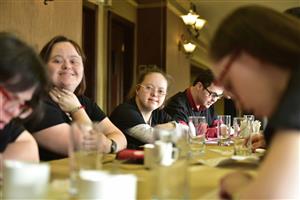
Facilitated self-advocacy groups for people with Down Syndrome
In 2017 the Down Syndrome Association of Turkey launched the self-advocacy group Voice+1, which organizes regular meetings supported by facilitators. By 2022, Voice+1 has grown to 27 self-advocates in five cities and has resulted in the establishment of a Down syndrome research commission in parliament.
Down Syndrome Association, My Voice, My Society – Voice+1, Turkey -
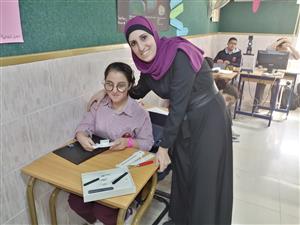
Inclusive schools for students who are blind or visually impaired
The Arab Episcopal School in Irbid is an inclusive school with kindergarten for children with and without visual impairments and of different religions. In 2018 the school had 40 blind or visually impaired school children. Five of the teachers are blind and also support the children in their daily life.
Arab Episcopal School Irbid, Inclusive Education for visually impaired children, Jordan -
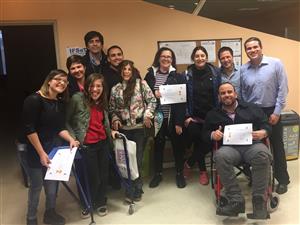
Job portal for persons with disabilities, going international
Incluyeme.com, launched in 2013, is Latin America's first and largest job portal for people with disabilities. It operates in eight countries and has more than 200,000 registered users in 2020. Incluyeme also provides training and services for companies that want to hire people with disabilities.
Incluyeme.com, Job portal for persons with disabilities, Argentina -
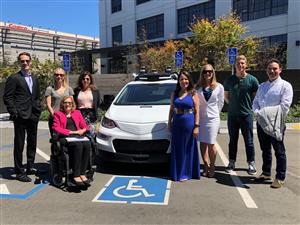
Government-led crowdsourcing platform to guide policymaking for inclusive workplaces
The US Department of Labor’s ePolicyWorks is a ‘virtual town hall’. Through an accessible online crowdsourcing tool, anyone can participate in national dialogues on employment and disability issues - a model that has already been adopted by other US agencies.
Department of Labor of the US, ePolicyWorks Initiative, United States of America -
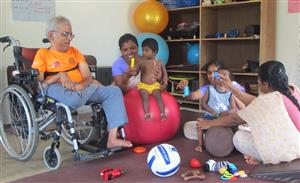
App-based family centred early intervention therapy in rural communities
Amar Seva Snagam (ASSA) runs an Early Intervention Centre. To make its services also available in more distant regions, ASSA has developed a training program for community rehabilitation workers, including an app for ongoing support. Besides connectivity, the app serves to track the progress of the therapy.
Amar Seva Sangam, Training of Community Rehabilitation Workers, India -
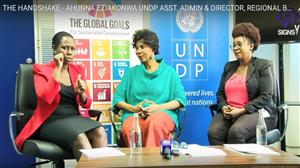
24-hour TV station broadcasting in sign language
Signs TV broadcasts in sign language along with audio and voice, presenting informative, educational, and entertainment content with a focus on deaf culture and disability rights. In 2019 Signs TV had an estimated audience of 500,000 deaf people, 1.2 million with other disabilities and 1.5 million people who wanted to learn sign language.
Signs Media Kenya Limited, Signs TV, Kenya -
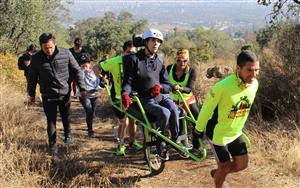
Model for accessible parks and nature spaces going international
The Senderismo sin Limites programme was initiated by Fundacion Eres, an NGO from Chile, to ensure that hiking and natural areas can be used by people with disabilities. The programme includes training for tourism professionals, self-assessment tools, improvement plans, and single-wheeled transport vehicles.
Fundación Eres, Senderismo sin Limites (Hiking Without Limits), Chile -
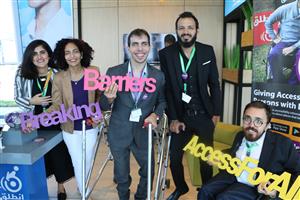
Using analytic tools to make workplaces more accessible and jobs more inclusive
Helm is working with companies in Egypt to provide both job analysis for recruitment and accessibility consultancy services, including accessibility audits. By 2020, Helm had completed a total of 1,063 accessibility audits in a number of sectors and helped recruit 100 people with disabilities.
Helm, Workplace Inclusive Solutions, Egypt -
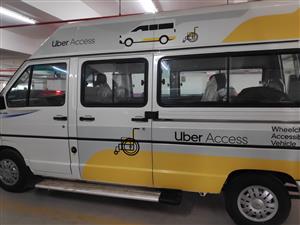
Cooperation of an IT-company with Uber for improving the accessibility of taxi services
The Indian IT group Mphasis developed two services joining forces with the taxix service Uber to make their services more accessible and financed their implementation: uberASSIST offers passengers assistance from trained driver-partners, and uberACCESS offers retrofitted, wheelchair-accessible vehicles.
Mphasis F1 Foundation, Mphasis uberASSIST and uberACCESS, India -
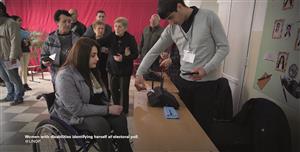
Election policy toolkit of a UN agency for persons with intellectual disabilities
In 2021 the Multi-Partner Trust Fund of the UN Partnership on the Rights of Persons with Disabilities (PRPD MPTF), UNDP, and Inclusion International developed the first toolkit in easy language to promote the participation of people with psychosocial and intellectual disabilities in political processes. By 2022 the toolkit was being used in more than 30 countries. The United Nations Partnership on the Rights of Persons with Disabilities (UNPRPD), Toolkit for Political Participation of Persons with Intellectual or Psychosocial Disabilities,